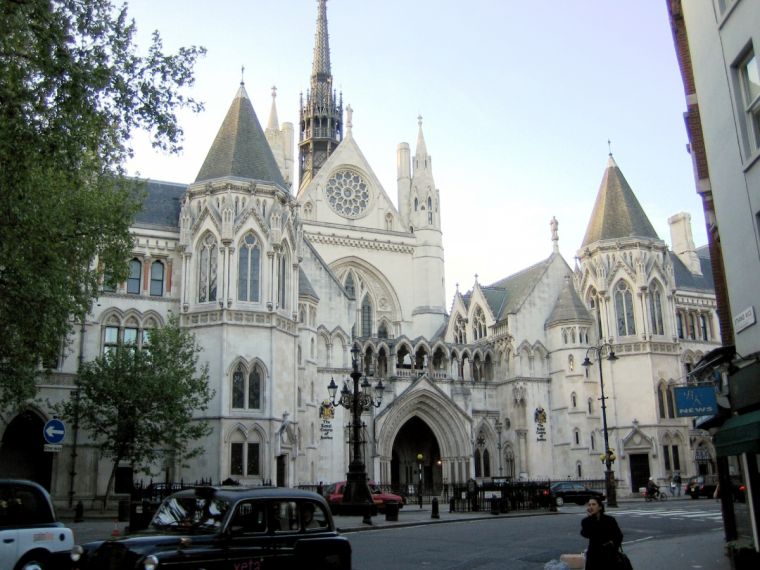Child abuse, the Church and the Goddard inquiry: Why we should all pray it succeeds

A year after it opened on July 9, 2015, the Goddard inquiry into institutional child sex abuse has spent nearly £18 million on highly-paid lawyers and setting up regional offices, but has still not heard any actual evidence. The inquiry is gradually creeping toward the point where it will, however, and next week there will be preliminary hearings about organisations including the Church of England and the Roman Catholic Church.
This inquiry seems to have been going for ages already.
Not really. But it seems like it because it was first mooted after revelations about the scope of Jimmy Savile's offending in 2012. It was actually set up in 2014, but two people appointed to chair it, Baroness Butler-Sloss and Dame Fiona Woolf, resigned in succession due to perceived conflicts of interest. Former home secretary and now PM, Theresa May, eventually settled on New Zealander Dame Justice Lowell Goddard.
So, we aren't looking at another Chilcot?
The Chilcot inquiry into the Iraq war took seven years. Justice Goddard has said hers will take five, so think 2020.
Just explain why it's so complicated.
The Savile case was one of several that exposed just how widespread the abuse of children in institutional settings really is. The Goddard inquiry has set up investigations into 13 areas and organisations, including the internet, Anglican Churches in England and Wales, the Roman Catholic Church, Lambeth Council and Westminster. The latter will look at allegations prominent people including Members of Parliament, senior civil servants, government advisers and members of the intelligence agencies were involved in child sex abuse. A separate inquiry will look at Lord Janner, a senior MP who was accused of child sex abuse over a long period but not prosecuted because of his advanced Alzheimer's disease.
What's going to happen next week?
Not much, really. It's an update on progress on seven of the investigations including the one into Lord Janner – it's postponed for six months – and the Anglican and Roman Catholic Churches.
What are the issues for the Anglicans?
The inquiry's going to look at its child protection policies to see that they're up to scratch, which they probably are. It will also look at the past case reviews carried out in England and Wales, in which the Churches have tried to go back and find abuse cases they might have missed during the last few decades. It will look at the Diocese of Chichester, where there have been "multiple allegations of sexual abuse", and the case of former Bishop of Gloucester Peter Ball. In that case the inquiry will consider "whether there were inappropriate attempts by people of prominence to interfere in the criminal justice process after he was first accused of child sexual offences". The Ball case is also the subject of a separate review set up by the Archbishop of Canterbury.
And the Roman Catholics?
Again, the inquiry will look at how their child protection policies are working now, with further investigations into specific cases as required. The first case study will look at the English Benedictine Congregation, which has been the subject of several abuse allegations, and how orders like the Benedictines relate to the wider Roman Catholic Church.
It all seems quite chilly and legal.
Yes. But part of the inquiry is a Truth Project, for which survivors of child sexual abuse are encouraged to share their stories. The inquiry wants to hear from anyone who was sexually abused as a child in an institutional setting like a care home, a school or a religious organisation, or reported sexual abuse as a child and found the report was ignored or not properly acted on. People who want to talk about what happened to them will be able to attend a private session to share their experience with a member of the inquiry. It says: "Their accounts will not be tested, challenged, or contradicted. The information supplied will be anonymised and will be considered by the Chair and Panel members when reaching their conclusions and making recommendations for the future. As part of the Truth Project, victims and survivors will be given an opportunity to write a message to be published together with the Inquiry's annual reports."
Anything else?
There will be a Public Hearings Project where witnesses give evidence on oath and are subject to cross examination. The subjects of the hearings might be individuals who've abused children in institutional settings, or the institutions themselves. These should start later this year.
Just how important is this?
As important as it gets. The abuse of children by people who ought to be caring for them is the ultimate betrayal. Justice Lowell wrote in a Guardian article: "The sexual abuse of children over successive generations has left permanent scars, not only on the victims themselves, but on society as a whole. It is the inherent right of every child to experience a childhood free of sexual abuse and intimidation – to be allowed to grow and develop without trauma.
"There is no doubt that the inquiry's task is immense. But the scale and magnitude of the problem of child sexual abuse means there is no easy fix. This is the opportunity to get to the heart of one of the biggest challenges for our generation. I truly hope that, through our work, we mark the beginning of a new era in child protection."
It is a lasting shame that some of this abuse has been within the Church. It mustn't be allowed to happen again.











